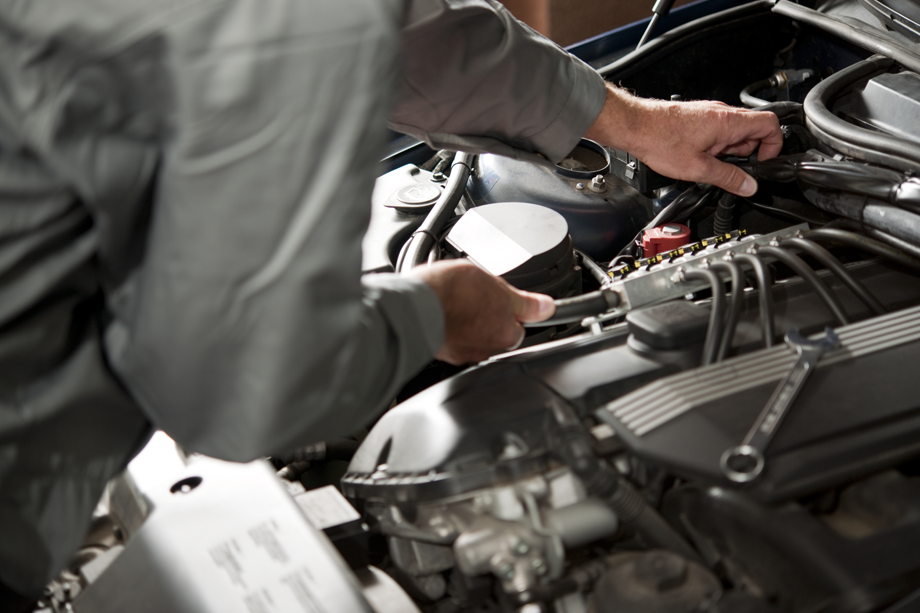All Categories
Featured
Responsible for integrating the rotation of the crankshaft and camshaft, the timing belt guarantees the engine's shutoffs close and open at the correct times throughout the burning process. If the timing belt falls short, it can result in extreme engine damages.
What Is a Timing Belt? The timing belt is a long, toothed rubber or composite belt that attaches the crankshaft to the camshaft(s) in an interior combustion engine. Its work is to maintain the engine's shutoffs and pistons in sync, ensuring the engine runs efficiently. The timing belt likewise regulates various other important engine functions like the water pump and the power steering pump, depending on the vehicle.
![]()
Without the correct timing, the engine's pistons and shutoffs can collide, causing costly and considerable damages. Replacing the timing belt on routine is one of the ideal methods to ensure your engine runs at its best and stop expensive fixings.
Why Timing Belt Substitute Issues. Preventing Catastrophic Engine Damages: The most substantial threat of not replacing a worn timing belt is engine failing. Replacing the timing belt at the suggested periods is the best method to protect against such devastating damages, conserving you from the tension and high expense of engine repair work or substitute.
![]()
Keeping Engine Efficiency: A timing belt that's in excellent condition makes sure that all engine parts work in ideal consistency. If the timing belt is used or stretched, it can trigger the engine to shed power, experience rough idling, or battle to begin. By changing the timing belt on a regular basis, you can keep your engine performing at peak effectiveness, which assists preserve ideal fuel economic situation and efficiency.
Preventing Unforeseen Failures: A broken timing belt can trigger your engine to quit suddenly, potentially leaving you stranded in the center of a journey. By changing your timing belt promptly, you lessen the danger of sudden failures that could leave you in a troublesome or harmful scenario. Routine upkeep minimizes the possibilities of experiencing these kinds of disruptions, helping you remain on the road longer without stressing over your engine stopping working.
Cost-Effective Upkeep: Timing belt substitute is much less costly than repairing or changing an engine that's been damaged because of a timing belt failing. While the price of replacing the timing belt may differ relying on your vehicle and its place, it is even more economical than the costs connected with major engine repairs or replacements. Replacing your timing belt at the suggested periods can conserve you a substantial quantity of cash over the future by stopping damage to your engine.
When Should You Change Your Timing Belt? The timing belt does not last forever, and many manufacturers advise replacing it in between 60,000 and 100,000 miles. The specific timing depends on your lorry's make, design, and driving conditions, so it's necessary to inspect your owner's guidebook for particular support.
Indications that your timing belt might require focus include uncommon engine noises (such as a piercing whining or ticking sound), problem beginning the engine, or a reduction in engine efficiency. It's critical to have the timing belt inspected by an expert mechanic. if you notice any of these indicators.
![]()
Final thought. The timing belt is a tiny yet crucial part of your engine, and routine replacement is key to keeping your lorry's performance and stopping expensive damages. By remaining on top of timing belt upkeep, you'll guarantee your engine runs effectively, stay clear of unforeseen malfunctions, and secure your automobile from major repair work. Watch on your car's recommended timing belt replacement routine, and always consult with a trusted mechanic to keep your engine running efficiently for many years to come.
What Is a Timing Belt? The timing belt is a long, toothed rubber or composite belt that attaches the crankshaft to the camshaft(s) in an interior combustion engine. Its work is to maintain the engine's shutoffs and pistons in sync, ensuring the engine runs efficiently. The timing belt likewise regulates various other important engine functions like the water pump and the power steering pump, depending on the vehicle.

Without the correct timing, the engine's pistons and shutoffs can collide, causing costly and considerable damages. Replacing the timing belt on routine is one of the ideal methods to ensure your engine runs at its best and stop expensive fixings.
Why Timing Belt Substitute Issues. Preventing Catastrophic Engine Damages: The most substantial threat of not replacing a worn timing belt is engine failing. Replacing the timing belt at the suggested periods is the best method to protect against such devastating damages, conserving you from the tension and high expense of engine repair work or substitute.

Keeping Engine Efficiency: A timing belt that's in excellent condition makes sure that all engine parts work in ideal consistency. If the timing belt is used or stretched, it can trigger the engine to shed power, experience rough idling, or battle to begin. By changing the timing belt on a regular basis, you can keep your engine performing at peak effectiveness, which assists preserve ideal fuel economic situation and efficiency.
Preventing Unforeseen Failures: A broken timing belt can trigger your engine to quit suddenly, potentially leaving you stranded in the center of a journey. By changing your timing belt promptly, you lessen the danger of sudden failures that could leave you in a troublesome or harmful scenario. Routine upkeep minimizes the possibilities of experiencing these kinds of disruptions, helping you remain on the road longer without stressing over your engine stopping working.
Cost-Effective Upkeep: Timing belt substitute is much less costly than repairing or changing an engine that's been damaged because of a timing belt failing. While the price of replacing the timing belt may differ relying on your vehicle and its place, it is even more economical than the costs connected with major engine repairs or replacements. Replacing your timing belt at the suggested periods can conserve you a substantial quantity of cash over the future by stopping damage to your engine.
When Should You Change Your Timing Belt? The timing belt does not last forever, and many manufacturers advise replacing it in between 60,000 and 100,000 miles. The specific timing depends on your lorry's make, design, and driving conditions, so it's necessary to inspect your owner's guidebook for particular support.
Indications that your timing belt might require focus include uncommon engine noises (such as a piercing whining or ticking sound), problem beginning the engine, or a reduction in engine efficiency. It's critical to have the timing belt inspected by an expert mechanic. if you notice any of these indicators.

Final thought. The timing belt is a tiny yet crucial part of your engine, and routine replacement is key to keeping your lorry's performance and stopping expensive damages. By remaining on top of timing belt upkeep, you'll guarantee your engine runs effectively, stay clear of unforeseen malfunctions, and secure your automobile from major repair work. Watch on your car's recommended timing belt replacement routine, and always consult with a trusted mechanic to keep your engine running efficiently for many years to come.
Latest Posts
Unlock WyHy Federal Credit Union – Top Benefits for Your Financial Future
Published May 23, 25
1 min read
Discover Premier Car Repair Services offered by Montclare Auto Repair – Drive with Confidence
Published May 22, 25
1 min read
Uncover Montclare Auto Repair’s Most Popular Auto Repairs and Why Drivers Rely On Them
Published May 21, 25
1 min read
More
Latest Posts
Unlock WyHy Federal Credit Union – Top Benefits for Your Financial Future
Published May 23, 25
1 min read
Discover Premier Car Repair Services offered by Montclare Auto Repair – Drive with Confidence
Published May 22, 25
1 min read
Uncover Montclare Auto Repair’s Most Popular Auto Repairs and Why Drivers Rely On Them
Published May 21, 25
1 min read